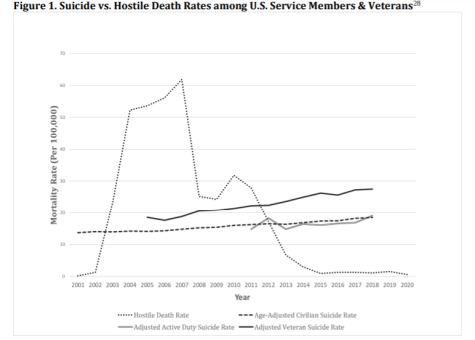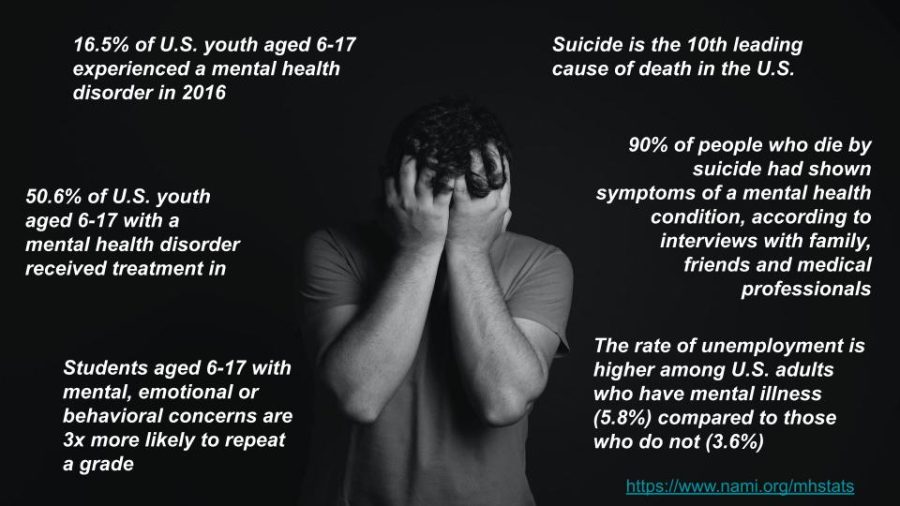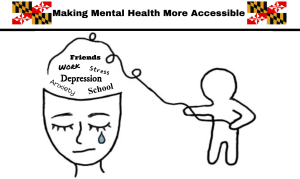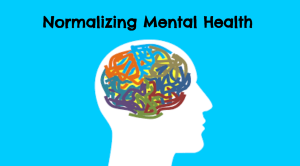What schools can do for the “new” mental health crisis
Mental health can be debilitating for everyone.
November 3, 2021
“Suck it up buttercup” is an older term that most commonly refers to people that may be struggling with mental health. Is this “get over it” mentality helpful for people with mental health problems?
What exactly is mental health? According to mentalhealth.gov, “mental health includes our emotional, psychological, and social well-being.”
In most recent years there has been a significant incline in regards to mental health problems (even before the pandemic) across the nation plaguing all generations. Nine to forty year olds are affected the most according to the MHA. A study done by Polaris Teen Center showed “approximately one in five teens (aged 12 to 18) suffer from at least one mental health disorder.”
Students that show signs of depression are twice as likely to drop out of school. Students may be feeling alone when it comes down to problems they may be facing, even when other kids could be feeling the same way.

Some people might not see the importance of taking care of mental health but mental health affects people of all ages and professions.
According to a report, “Cost of Wars” by Brown University, it “estimates 30,177 active duty personnel and veterans of the post 9/11 wars have died by suicide, significantly more than the 7,057 service members killed in post-9/11 war operations.” This statistics is staggering considering America is the land of wealth, but we fail to provide good enough support to those who fight and protect this country.
Well how do you help a problem that is so ingrained in society? The answer seems is schools. Schools have the capacity to teach their students the in and outs of the real world and problems that come with it. If schools seem to be one of the many ways to help societal mental health problems, what can be done by them, and why is it not happening?
Normalcy- Make it normal to talk about
When a child walks into a classroom with a cast on its foot, do you shun them or keep quite like their foot is a “secret?” The answer is no, so why does it seem that people with mental illness or mental health problems tend to be quiet and not talk about it?
As society changes, we believe that maybe the stigma against mental health is disappearing, but that simply is not the case. People still have trouble coming to terms with it, scared of what others will think and say. This “what will the neighbors think” mentality is extremely damaging for society.
Schools should be teaching more about mental health earlier. Children learn differently, but the way mental health is taught can be vital to challenging and defeating this stigma. Kids should be able to learn what mental health is and see that everybody can face it at some point in time, and that it is normal. Normalcy, an important role in combating mental health stigma. Stigma that can drive some people into places they can not get out of because of fear of what others may think, and the self hatred they may feel because they feel different from others.
Children do not see this stigma when they first experience somebody with mental health, but it is taught to them, by them seeing first hand on how people with mental health problems are treated. They see people treat them as though they are different when really they are no different from others, but treating them the same and teaching kids why it is okay to feel different from others. If we teach in schools from an early age about physical health (and nutrition) why is mental health not a category touched, because to us it contributes to our day to day live just as much as our physical well being.
Inform the Parents
Parents may be quick to judge on behalf of their kids whether what they are feeling is valid or not. This leaves the kids in a bind, not knowing if they should believe their feelings or their parents. While not all parents are like this, a significant number of parents are not able to relate (to new reasons why their child struggles with mental health), meaning it is hard for them to understand how their child feels.
Schools could host informational meetings for parents with children that have children as young as elementary school students. Why wait for a problem to happen in maybe the adolescence stage, and be ignorant about mental health issues.
Counselors could help teach parents signs, and ways to help their child if they do experience problems. They could also help parents find referrals through a mental health professional, to get their child outside help. A survey done by very well mind, a website centered around mental health, found “one in five parents are extremely concerned about their kids’ mental health right now, and 60% of parents are at least moderately concerned.” If parents are becoming more concerned with their children’s mental health, the information given to them about it should too.
Teaching about the harms of social media
With social media increasing every day, algorithms are created to catch the viewer’s eyes. The content that is the most eye catching can also be the most harmful to young and impressionable minds. Facebook was recently exposed for sending targeted information that has been known to be harmful to teens. With this new leak came information that many people already knew, but why aren’t we spreading this information in the curriculum. Fredrick county’s curriculum have a unit on the dangers of social media, but only focus on the fact that something you post will stay online forever. We need to go past this and teach about how misinformation is spread, and how unrealistic life/beauty standards are spread.
While some put child blocks on social media, many teens know how to get around them. So is trying to put a band-aid on phones going to help because what happens when this band-aid falls off? Many children are sent in blind to social media, leaving all this information at their finger tips, causing more harm than good.
Funding
Funding can be used to provide extra counselors, school therapists, and behavior specialist. These are fundamental for a “happy” school.
Student protest have are not new, and neither is mental health. Protest are a way to apply pressure to the state for change. This change in how money is allocated to schools is very important. The more pressure applied, and the more laws put in place in line with mental health, the better.




